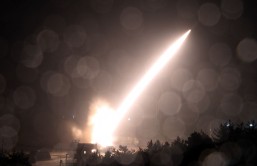The Earth's atmosphere contains an unexpectedly large amount of an ozone-depleting compound from an unknown source, NASA researchers have shown in a significant revelation, decades after the compound was banned worldwide.
Regulated in 1987 under the Montreal Protocol along with other chlorofluorocarbons that destroy ozone, carbon tetrachloride (CCl4) was once used in applications such as dry cleaning and as a fire-extinguishing agent, Indo-Asian News Service reported. Between 2007 and 2012, parties to the Montreal Protocol reported zero new CC14 emissions.
However, new research suggests worldwide emissions of CCl4 average 39 kilotons per year, approximately 30 percent of peak emissions prior to the international treaty going into effect. "We are not supposed to be seeing this at all. It is now apparent there are either unidentified industrial leakages, large emissions from contaminated sites or unknown CCl4 sources," said Qing Liang, an atmospheric scientist at NASA's Goddard Space Flight Centre in Greenbelt, Maryland.
"Is there a physical CCl4 loss process we do not understand or are there emission sources that go unreported or are not identified?" Liang asked.
With zero CCl4 emissions reported between 2007-12, atmospheric concentrations of the compound should have declined at an expected rate of 4 percent per year, according to IANS. "Observations from the ground showed atmospheric concentrations were only declining by one percent per year," Liang added.
NASA's 3-D GEOS Chemistry Climate Model and data from global networks of ground-based observations was used by Liang and colleagues to investigate the discrepancy.
In addition to unexplained sources of CCl4, the model results showed the chemical stays in the atmosphere 40 percent longer than previously thought. "People believe the emissions of ozone-depleting substances have stopped because of the Montreal Protocol. Unfortunately, there is still a major source of CCl4 out in the world," said Paul Newman, a chief scientist for atmospheres at NASA's Goddard Space Flight Centre.
The research was published in the journal Geophysical Research Letters.








